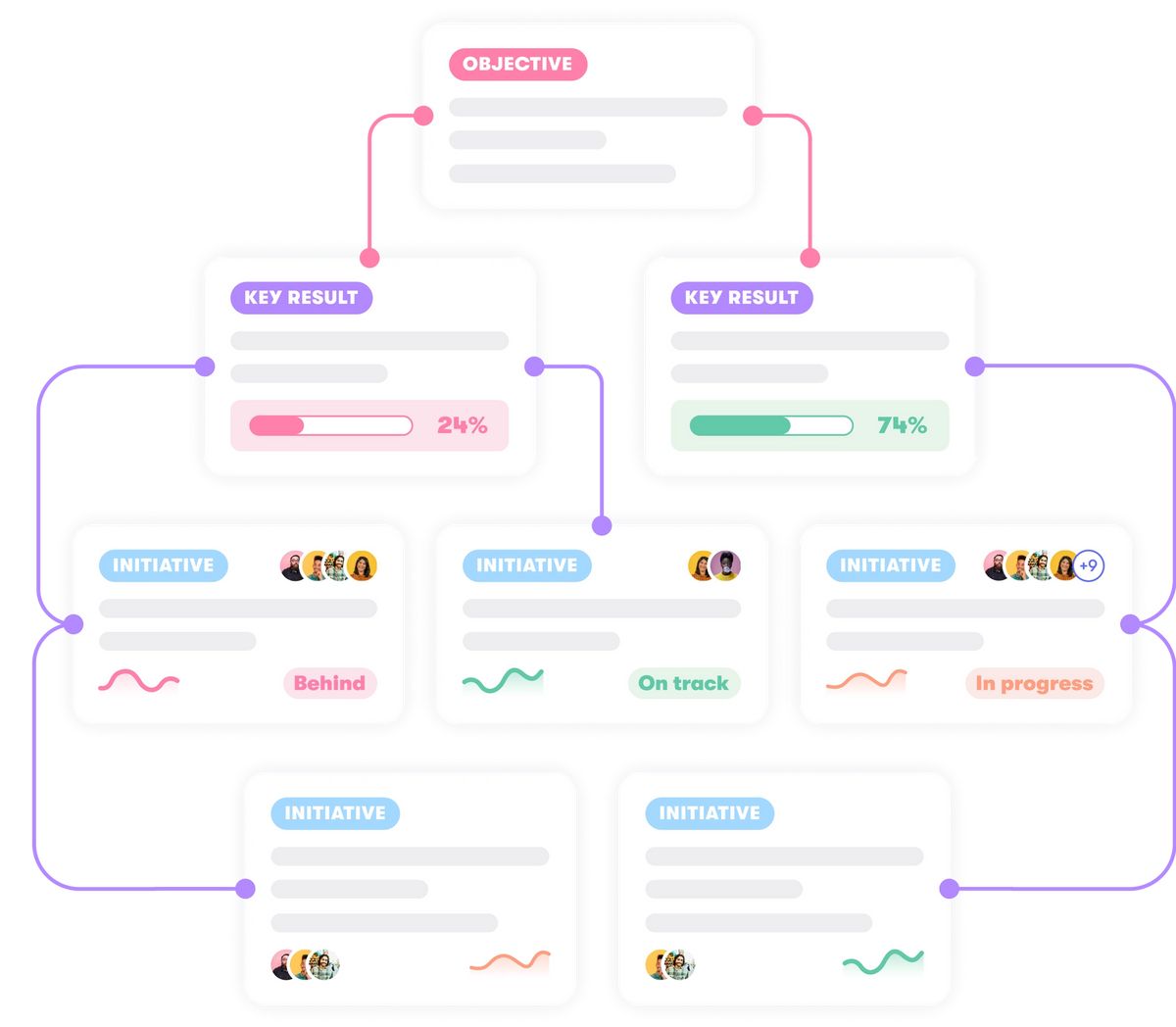The answer is simple: Everyone in your company!


Who owns OKRs within an organization?
A lot of people ask us: who is responsible for OKRs? The answer is simple: everyone in your company! While it may be true that some people are more involved in setting and achieving objectives than others, it's important to remember that OKRs are a team effort. Everyone in your company should be playing a role in achieving your company's goals.
So how can everyone get involved? Here are a few ideas:
- Leaders can help by setting the overall direction for the company and aligning everyone's efforts with the company's goals.
- Managers can help by setting objectives for their teams and ensuring that everyone is working towards them.
- Individual contributors can help by working hard to achieve their objectives and helping their team members do the same.
Remember, everyone has a role to play in achieving OKRs, but a constant challenge for organizations is getting buy-in from team members and giving them a sense of ownership. You can do this by instating bottom-up goal-setting, giving your team more autonomy in choosing their own initiatives.
Why choose Collato to track your OKRs?
Why choose Collato to track your OKRs?

Give work meaning
Visualize the connection between team initiatives and company goals.

Track progress precisely
Track progress in real-time to see which initiatives are advancing goals to 100%.

Work your way
Create workflows down to the smallest task level without the need for yet another project management tool.
OKR FRAMEWORK
VIEW DETAILS

Who created OKR?
VIEW DETAILS

How do you set good OKRs?
VIEW DETAILS

How do companies implement OKRs?
VIEW DETAILS

How do you introduce OKRs?
VIEW DETAILS

Why OKR?
VIEW DETAILS

When should OKRs be set?
VIEW DETAILS

What are OKRs in business?
VIEW DETAILS

How many levels are in OKRs?
VIEW DETAILS

How many OKRs should you have?
VIEW DETAILS

Is Google still using OKRs?
